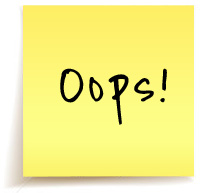The Parent
In this phase your role remains to teach, guide and assist your child in their educational, physical, emotional and social development. You should also still work with the teacher so that your child progresses confidently through school. It is advised to continue checking homework and assisting when necessary. If your child is battling with concepts, you should work with them until they understand the concepts, independently.Intermediate phase (Grades 4-6)
This phase is about using foundational concepts to build their knowledge and learn new concepts. A child with strong foundational skills is more likely to succeed in this phase, and to develop a sense of independent learning. Your role as a parent in this phase is to guide and instruct your child and for them to attempt the work individually without your continuous involvement. This does not mean your child is expected to work unassisted, but that they are required to work for periods independently, knowing that you are available should they get stuck.This phase teaches them how to use their previous knowledge to learn new concepts. Your child is now at a stage where they are learning to work independently and develop their skills, but they are still reliant on the teacher and yourself to teach, instruct, and help them.


 Oops! We can’t find the article you are looking for. Please try a different Subject, Grade or Title.
Oops! We can’t find the article you are looking for. Please try a different Subject, Grade or Title.